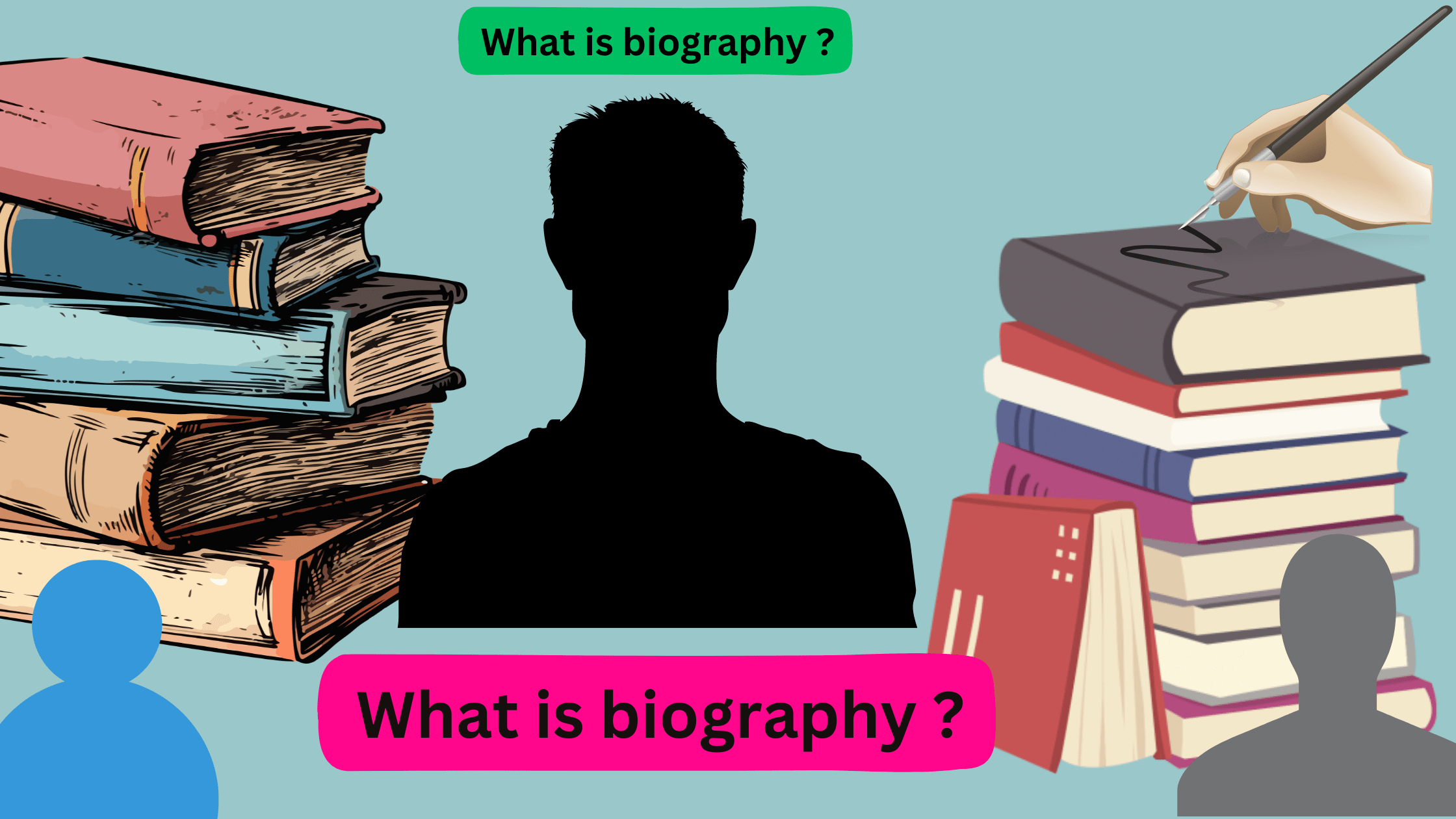The Ethics of Writing Biographies
When it comes to writing biographies, there’s more to consider than just the facts and figures. The ethics behind this genre of literature play a significant role in how these stories are told. It’s not just about gathering information and relaying it to the reader; it’s about preserving the integrity and respecting the privacy of the subject. In this article, we delve into the intriguing world of biographical writing, exploring the ethical considerations that come into play.
From choosing which details to prioritize to ensuring accuracy and fairness, biographers face a delicate balancing act. How much agency should they give their subjects? When is it appropriate to omit or rearrange facts in the interest of storytelling? These are complex questions with no easy answers, but understanding the ethical implications is crucial for both writers and readers alike.
Whether you’re an aspiring biographer or simply intrigued by the inner workings of this genre, join us as we navigate the fascinating terrain of the ethics of writing biographies.
The importance of ethics in biography writing
Biographies hold a unique place in the literary landscape, offering readers a glimpse into the lives of remarkable individuals. However, the act of chronicling someone’s life is not without its ethical complexities. As biographers, we have a responsibility to our subjects, our readers, and the truth. Ethics in biography writing is not merely a matter of personal preference; it is a crucial consideration that shapes the very nature of the work.
At the heart of this ethical dilemma lies the delicate balance between the biographer’s desire to tell a compelling story and the subject’s right to privacy and self-determination. Biographers must navigate a minefield of sensitive information, personal relationships, and conflicting narratives, all while upholding the principles of accuracy, fairness, and respect. Failure to do so can result in a betrayal of trust, a distortion of history, and a disservice to both the subject and the reader.
The stakes are high, as biographies have the power to shape public perception, influence historical narratives, and even impact the lives of those being written about. A well-crafted biography can immortalize its subject, while a poorly executed one can tarnish a legacy or invade the privacy of individuals. It is this weighty responsibility that compels us to examine the ethics of biography writing with the utmost care and diligence.
Historical context and ethical considerations
The ethical landscape of biography writing has evolved over time, reflecting the shifting societal values and cultural norms of different eras. In the past, biographers often enjoyed greater latitude in their portrayal of subjects, with a focus on heroic narratives and the sanitization of unsavory details. However, as the field of biography has matured, a more nuanced understanding of ethics has emerged, one that recognizes the complexities inherent in capturing the essence of a human life.
Historically, the biographer’s role was often seen as that of a chronicler, tasked with preserving the legacy of the subject for posterity. This approach, while well-intentioned, could lead to the suppression or distortion of information that did not align with the desired narrative. The advent of modern biography, however, has challenged this traditional view, emphasizing the importance of providing a balanced and multifaceted account of the subject’s life.
Today, biographers are expected to grapple with a range of ethical considerations, from the responsible handling of sensitive information to the acknowledgment of their own biases and limitations. The rise of social media and the increasing accessibility of personal data have further complicated the ethical landscape, raising new questions about the boundaries of privacy and the public’s right to know.
Balancing objectivity and subjectivity in biographies
One of the central ethical challenges in biography writing is the delicate balance between objectivity and subjectivity. Biographers are tasked with the responsibility of presenting a faithful and impartial account of their subject’s life, while also acknowledging the inherent subjectivity that comes with the act of interpretation and storytelling.
The quest for objectivity is a noble one, as it allows biographers to present their subjects in a manner that is as unbiased and truthful as possible. This approach is particularly important when dealing with controversial or sensitive topics, where the temptation to sensationalize or distort the facts can be strong. By maintaining a commitment to objectivity, biographers can ensure that their work is a reliable and trustworthy source of information.
At the same time, the subjective nature of biography writing cannot be ignored. Biographers are not mere recorders of facts; they are interpreters of life, shaping the narrative through their own lens and experiences. The choices they make about which details to include, how to frame events, and which perspectives to amplify all reflect their own biases and preconceptions.
The ethical challenge lies in finding a way to balance these competing forces, acknowledging the subjectivity inherent in the process while still striving for a level of objectivity that honors the subject’s lived experience. This requires a deep self-awareness on the part of the biographer, a willingness to confront their own biases and limitations, and a commitment to transparency in their approach.
Ethics of including personal and confidential information
One of the most delicate ethical considerations in biography writing is the inclusion of personal and confidential information about the subject. Biographers must navigate a fine line between providing a comprehensive and nuanced account of their subject’s life and respecting the individual’s right to privacy and self-determination.
The temptation to include salacious or sensational details can be strong, as such information often promises to captivate readers and drive the narrative forward. However, the ethical biographer must resist this urge, recognizing that the subject’s personal life is not theirs to exploit for the sake of entertainment or commercial gain.
Instead, biographers must carefully consider the relevance and significance of any personal or confidential information they choose to include. Does it genuinely contribute to a deeper understanding of the subject’s character, motivations, or the events that shaped their life? Or is it merely a concession to the voyeuristic tendencies of the reader?
Equally important is the manner in which such information is presented. Biographers must strive to maintain a respectful and sensitive tone, avoiding sensationalism or the exploitation of the subject’s vulnerabilities. They must also be mindful of the potential impact their words may have on the subject’s family, friends, and loved ones, who may be profoundly affected by the revelations.
Ultimately, the ethical biographer must weigh the public’s right to know against the subject’s right to privacy, striking a delicate balance that preserves the integrity of the biographical work while respecting the humanity of the individual being portrayed.
Consent and privacy issues in biography writing
The issue of consent and privacy is a central ethical concern in the world of biography writing. Biographers must grapple with the question of how much access they are entitled to in the life of their subject, and how to navigate the often-complex web of personal relationships and confidential information.
In an ideal scenario, the subject of the biography would be alive and willing to participate in the process, granting the biographer access to their personal archives, memories, and perspectives. This level of cooperation can be invaluable, as it allows the biographer to gain a deeper understanding of the subject and to present a more nuanced and accurate portrayal.
However, the reality is often more complicated. Many biographies are written about individuals who have already passed away, leaving the biographer to rely on secondary sources and the fragmented memories of those who knew the subject. In these cases, the biographer must exercise great care and sensitivity, respecting the privacy of the deceased and their loved ones while still striving to present a comprehensive and truthful account.
Even when the subject is alive and willing to participate, the issue of consent can be fraught with ethical dilemmas. Biographers must be mindful of the power dynamics at play, ensuring that the subject’s participation is truly voluntary and not coerced or influenced by external factors. They must also be prepared to respect the subject’s right to withdraw consent or to place limitations on the information they are willing to share.
The ethical biographer must also consider the potential impact their work may have on the subject’s family, friends, and other individuals who may be mentioned or implicated in the narrative. While the biographer’s primary responsibility is to the truth and the public’s right to know, they must also weigh the potential harm that their work may cause and strive to minimize it wherever possible.
The role of fact-checking and accuracy in biographies
At the heart of ethical biography writing lies the fundamental principle of accuracy. Biographers have a responsibility to their subjects, their readers, and the historical record to ensure that the information they present is truthful, verifiable, and free from distortion.
Fact-checking is a critical component of this process, requiring biographers to meticulously verify the details they include in their work. This may involve cross-referencing multiple sources, consulting primary documents, and conducting interviews with individuals who have firsthand knowledge of the subject’s life.
However, the pursuit of accuracy goes beyond simply checking the facts. Biographers must also grapple with the inherent subjectivity of their craft, recognizing that their own biases and perspectives can shape the way they interpret and present the information they gather.
This requires a deep level of self-awareness and a willingness to challenge one’s own assumptions and preconceptions. Biographers must be willing to acknowledge their limitations, to seek out alternative perspectives, and to adjust their narratives accordingly, even if it means departing from their initial vision or conclusions.
The ethical imperative of accuracy also extends to the way biographers handle conflicting information or contradictory accounts. Rather than simply choosing the narrative that aligns with their preferred interpretation, biographers must carefully weigh the evidence, acknowledge the ambiguities, and present a balanced and nuanced portrayal of the subject’s life.
Ultimately, the pursuit of accuracy in biography writing is not just a matter of professional integrity; it is a moral obligation. By upholding the highest standards of factual integrity, biographers can ensure that their work serves as a reliable and trustworthy source of information, contributing to a deeper understanding of the human experience and the enduring legacies of those who have come before us.
Sensationalism and the ethics of storytelling in biographies
While the pursuit of accuracy is a fundamental ethical imperative in biography writing, the art of storytelling presents its own set of ethical challenges. Biographers must navigate the delicate balance between crafting a compelling narrative and preserving the integrity of their subject’s life.
The temptation to sensationalize or embellish the details of a subject’s life can be strong, as biographers may feel the need to captivate their readers and drive the narrative forward. However, the ethical biographer must resist this urge, recognizing that the subject’s life is not theirs to exploit for the sake of entertainment or commercial gain.
Instead, biographers must strive to find a way to tell a compelling story while still honoring the subject’s humanity and respecting their privacy. This may involve carefully selecting the details to include, framing events in a way that captures their significance without sensationalizing them, and maintaining a respectful and sensitive tone throughout the narrative.
Equally important is the biographer’s willingness to acknowledge the limitations of their own knowledge and perspective. Biographers must be transparent about the gaps in their information, the uncertainties they face, and the subjective nature of their interpretations. By doing so, they can help readers understand the nuances and complexities inherent in the biographical process, fostering a more informed and critical engagement with the work.
The ethical biographer must also be mindful of the potential impact their work may have on the subject’s family, friends, and loved ones. While the public’s right to know is a legitimate concern, biographers must weigh this against the potential harm their words may cause, and strive to strike a balance that respects the privacy and dignity of those involved.
Ultimately, the ethical imperative of storytelling in biography writing is not about sacrificing the truth for the sake of a more compelling narrative. Rather, it is about finding a way to bring the subject’s life to vivid and engaging life, while still upholding the principles of accuracy, fairness, and respect.
Ethical considerations when dealing with controversial figures
One of the most challenging ethical dilemmas in biography writing arises when the subject is a controversial or polarizing figure. Biographers must navigate a complex landscape of competing narratives, political agendas, and deeply-held beliefs, all while striving to present a balanced and impartial account of the subject’s life.
The temptation to take sides or to present a one-dimensional portrayal of the subject can be strong, particularly when dealing with individuals whose actions or beliefs have been the source of intense public scrutiny and debate. However, the ethical biographer must resist this urge, recognizing that the truth is often far more nuanced and complex than the simplistic narratives that may have taken hold in the public consciousness.
Instead, biographers must approach the subject with a deep sense of empathy and understanding, seeking to uncover the motivations, experiences, and contextual factors that shaped the individual’s life and choices. This may involve delving into the subject’s personal history, exploring the sociopolitical climate in which they lived, and seeking out alternative perspectives that challenge the dominant narratives.
At the same time, biographers must be willing to confront the subject’s actions and decisions head-on, acknowledging the harm or controversy they may have caused, and presenting a fair and impartial assessment of their legacy. This requires a delicate balance, as biographers must avoid both whitewashing the subject’s misdeeds and sensationalizing them for the sake of controversy.
Ultimately, the ethical biographer must strive to present a nuanced and multifaceted portrait of the subject, one that acknowledges their complexity and humanity, while still grappling with the moral and ethical implications of their choices and actions. By doing so, they can contribute to a deeper understanding of the human experience, and the enduring legacy of those who have shaped the course of history.
Conclusion : Striving for ethical integrity in biography writing
In the realm of biography writing, the pursuit of ethical integrity is not merely an optional consideration; it is a fundamental obligation that shapes the very nature of the work. As biographers, we have a responsibility to our subjects, our readers, and the historical record to uphold the highest standards of accuracy, fairness, and respect.
This ethical imperative requires us to navigate a complex and often treacherous landscape, one that is rife with competing interests, personal biases, and the temptation to sensationalize or distort the truth. It demands that we confront our own limitations, challenge our assumptions, and seek out alternative perspectives that may challenge or complicate the narratives we initially envisioned.
By embracing this ethical framework, biographers can ensure that their work serves as a reliable and trustworthy source of information, contributing to a deeper understanding of the human experience and the enduring legacies of those who have come before us. They can create works that not only captivate and engage their readers but also inspire reflection, empathy, and a greater appreciation for the complexities of the human condition.
Ultimately, the pursuit of ethical integrity in biography writing is not just a professional obligation; it is a moral imperative that speaks to the very heart of our humanity. By upholding these principles, we can ensure that the stories we tell not only illuminate the lives of our subjects but also illuminate the essential truths that unite us all.


